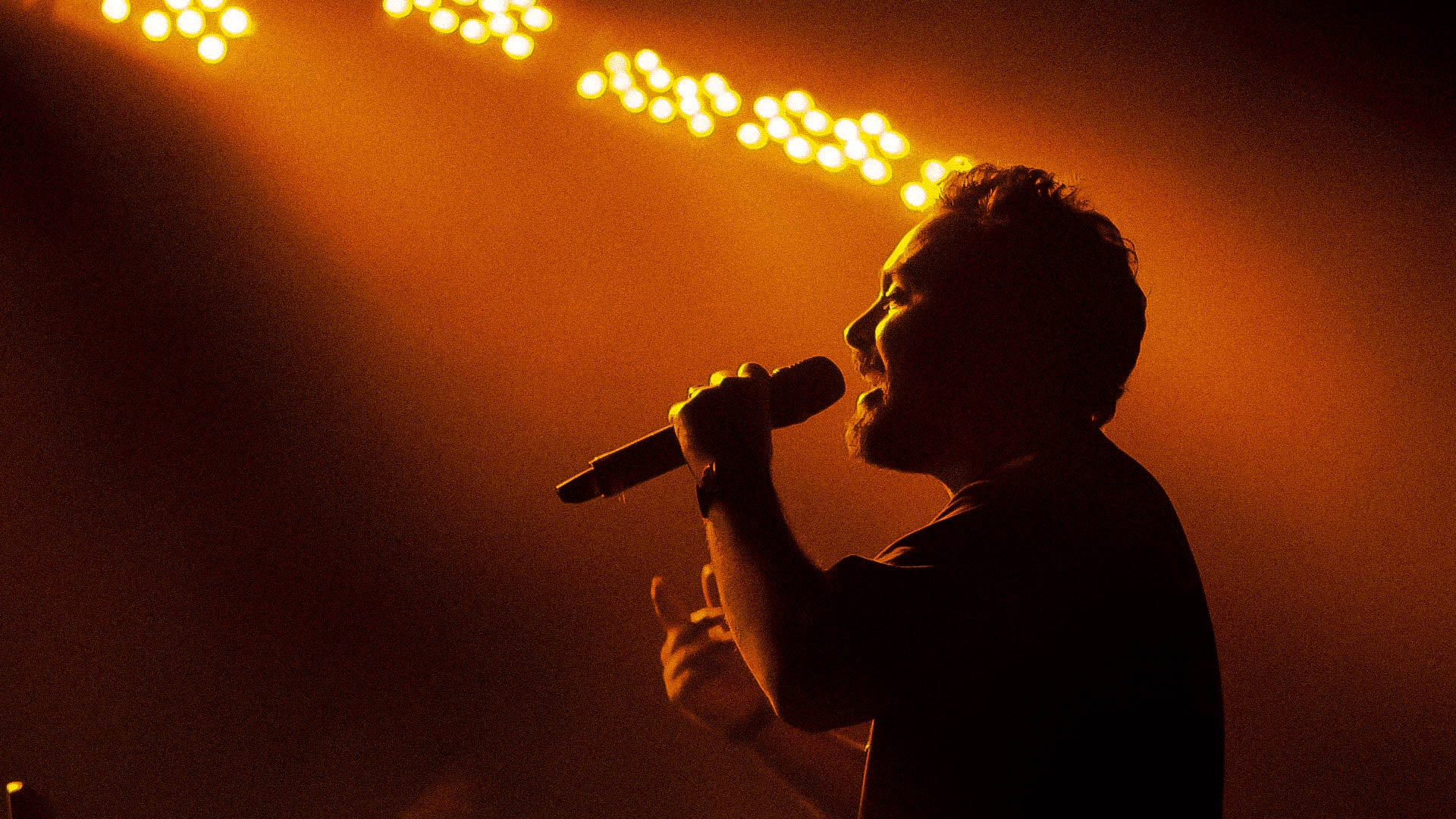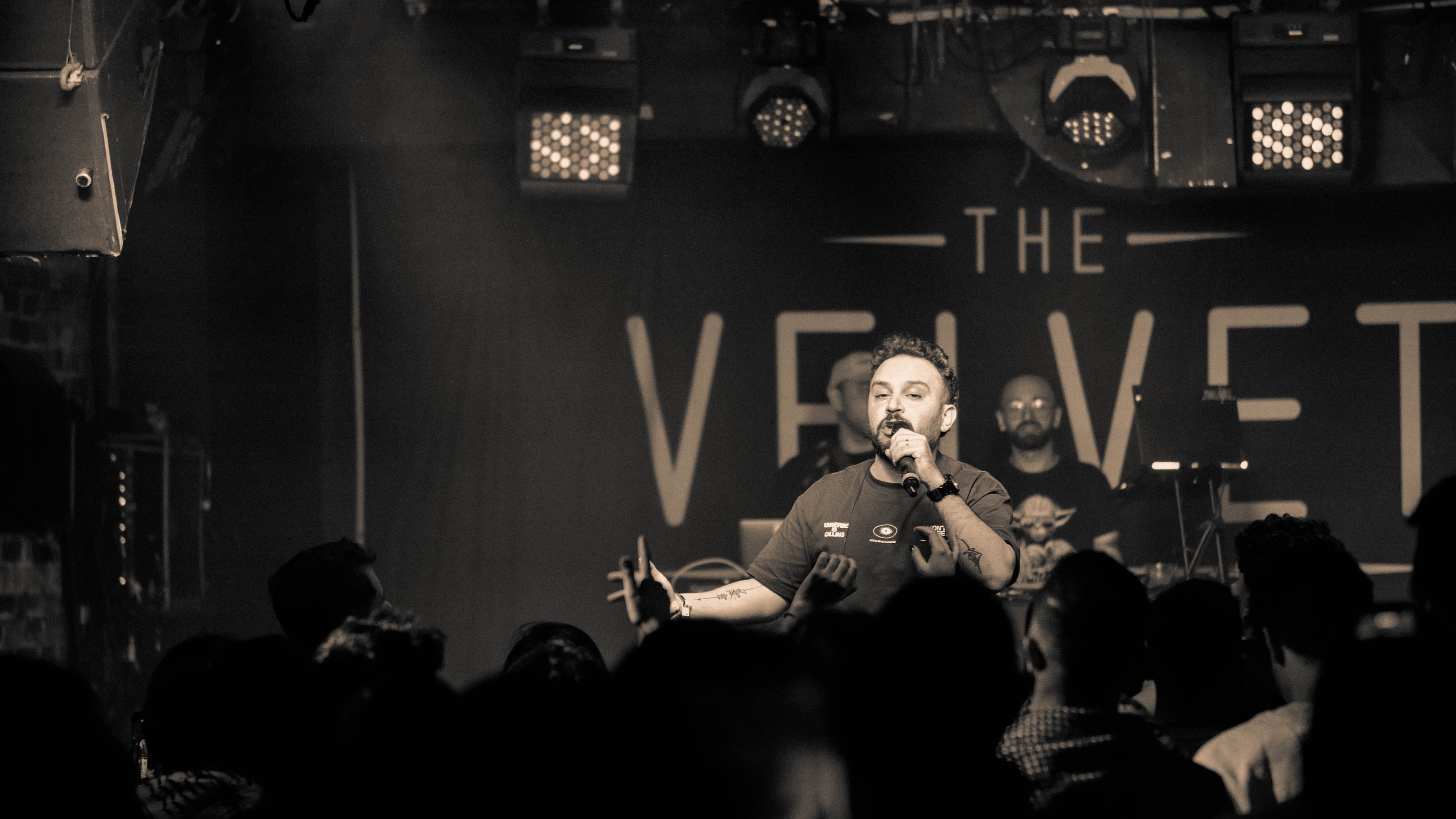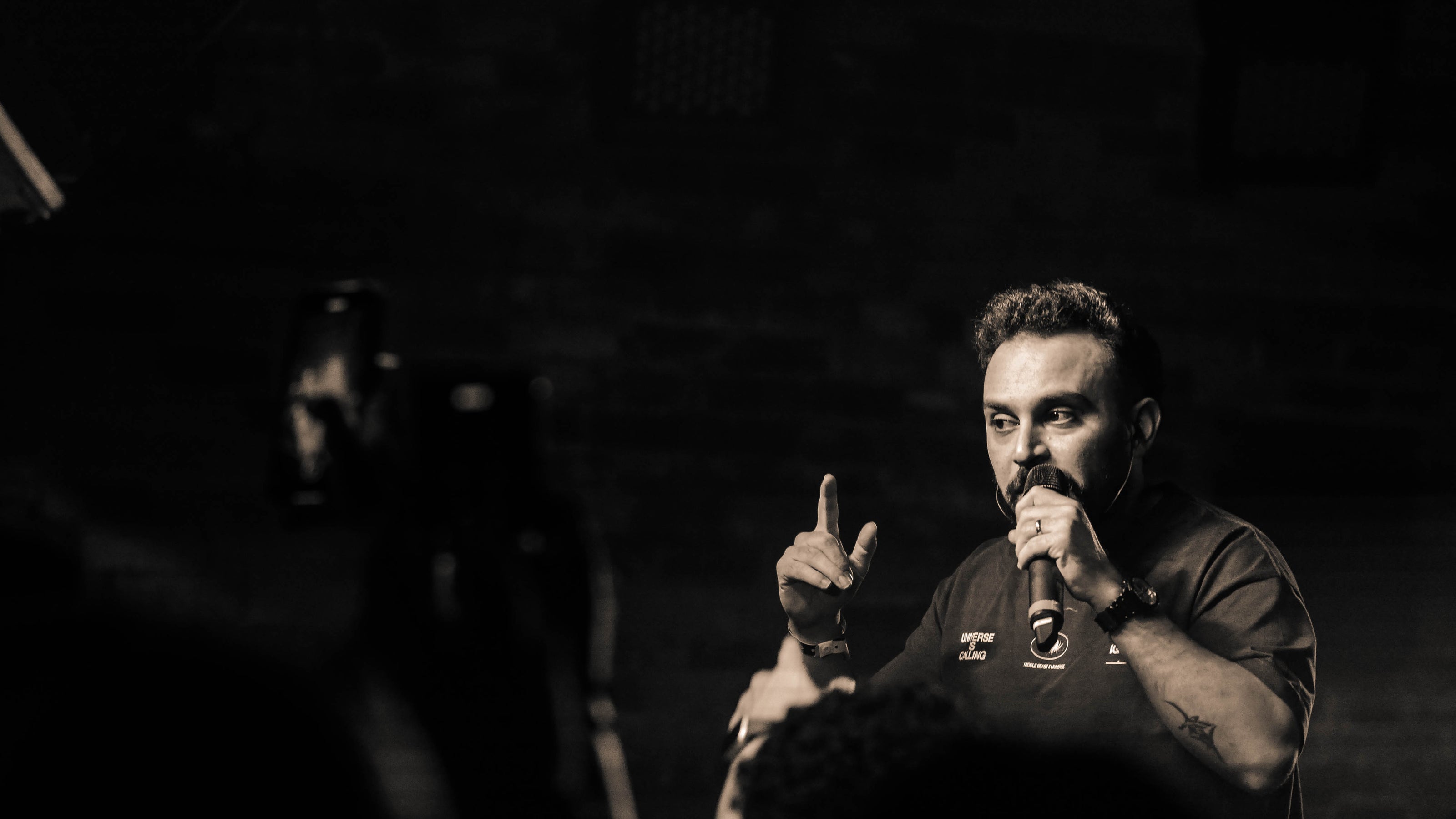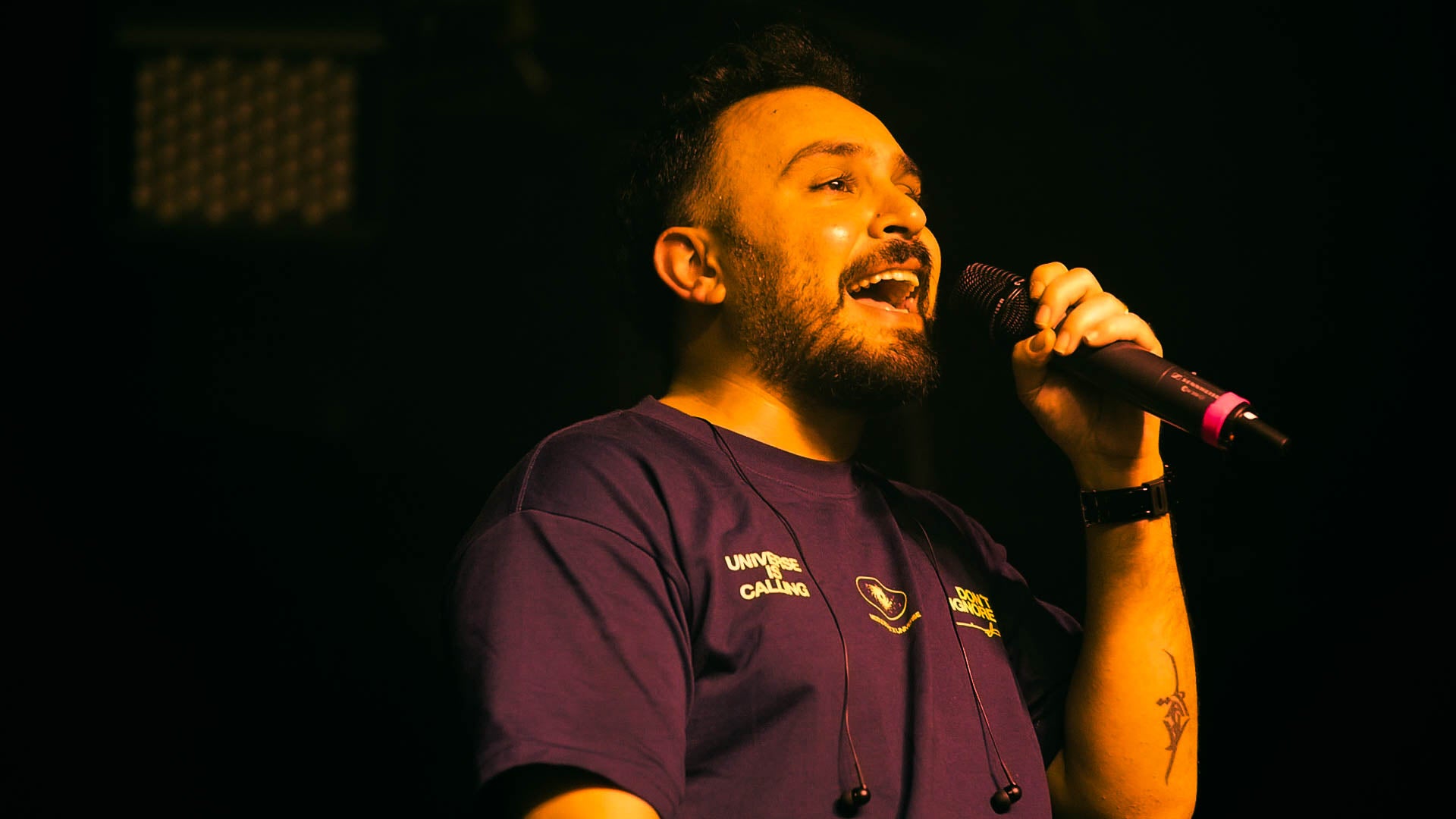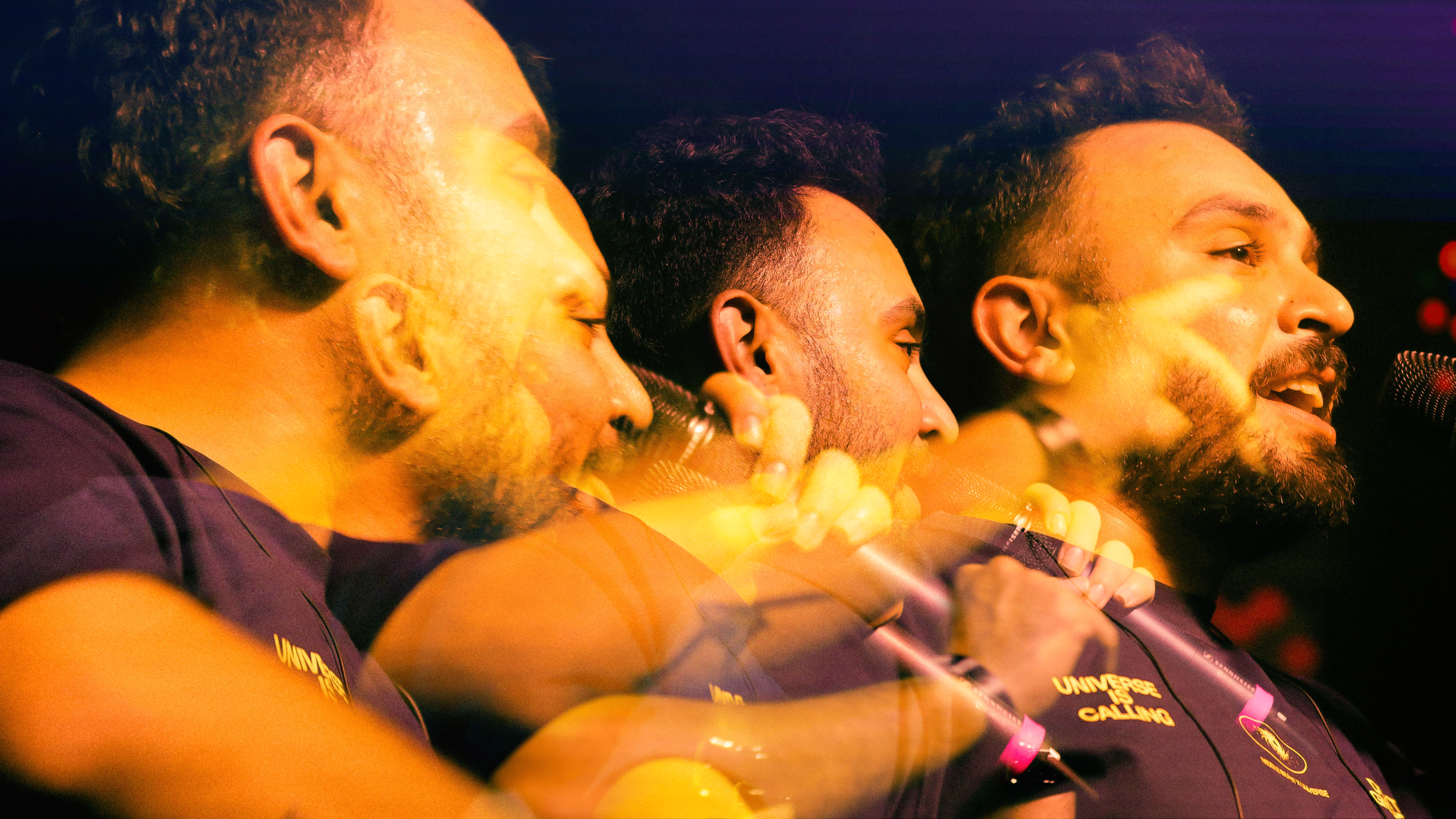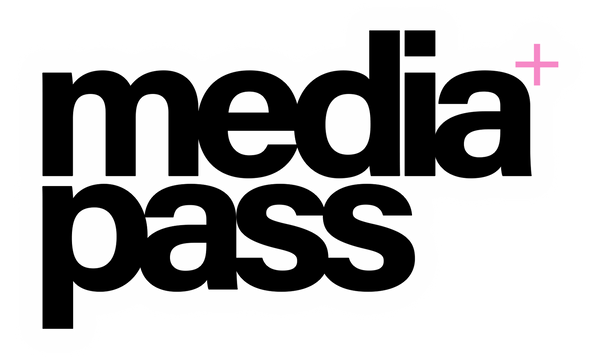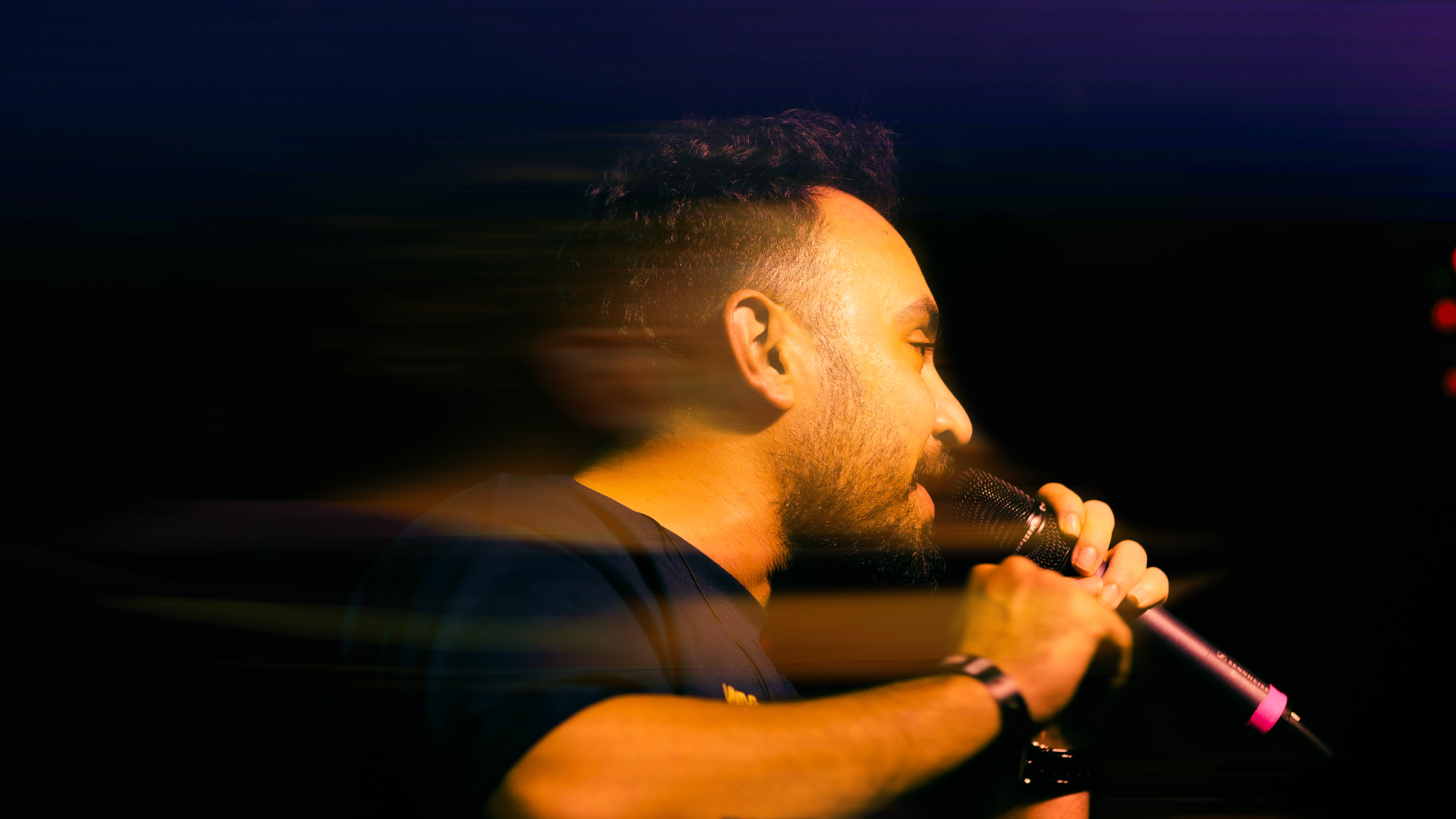
The Synpatik In Toronto
Interview by Imani Dominique Busby (@imani.dominique)
Photography by Anthony "Tone" Bailey (@_seeyoutmrw)
The Synaptik's debut show in Toronto at the Velvet Underground was a high-energy, unforgettable experience. The Palestine-based rapper’s concert was electric with fans going bar for bar to every song he performed. We sat down with The Synaptik for an open, engaging conversation about his music, career, and the journey that brought him to this moment. This interview takes you inside the life, stories, and passion behind The Synaptik’s music.
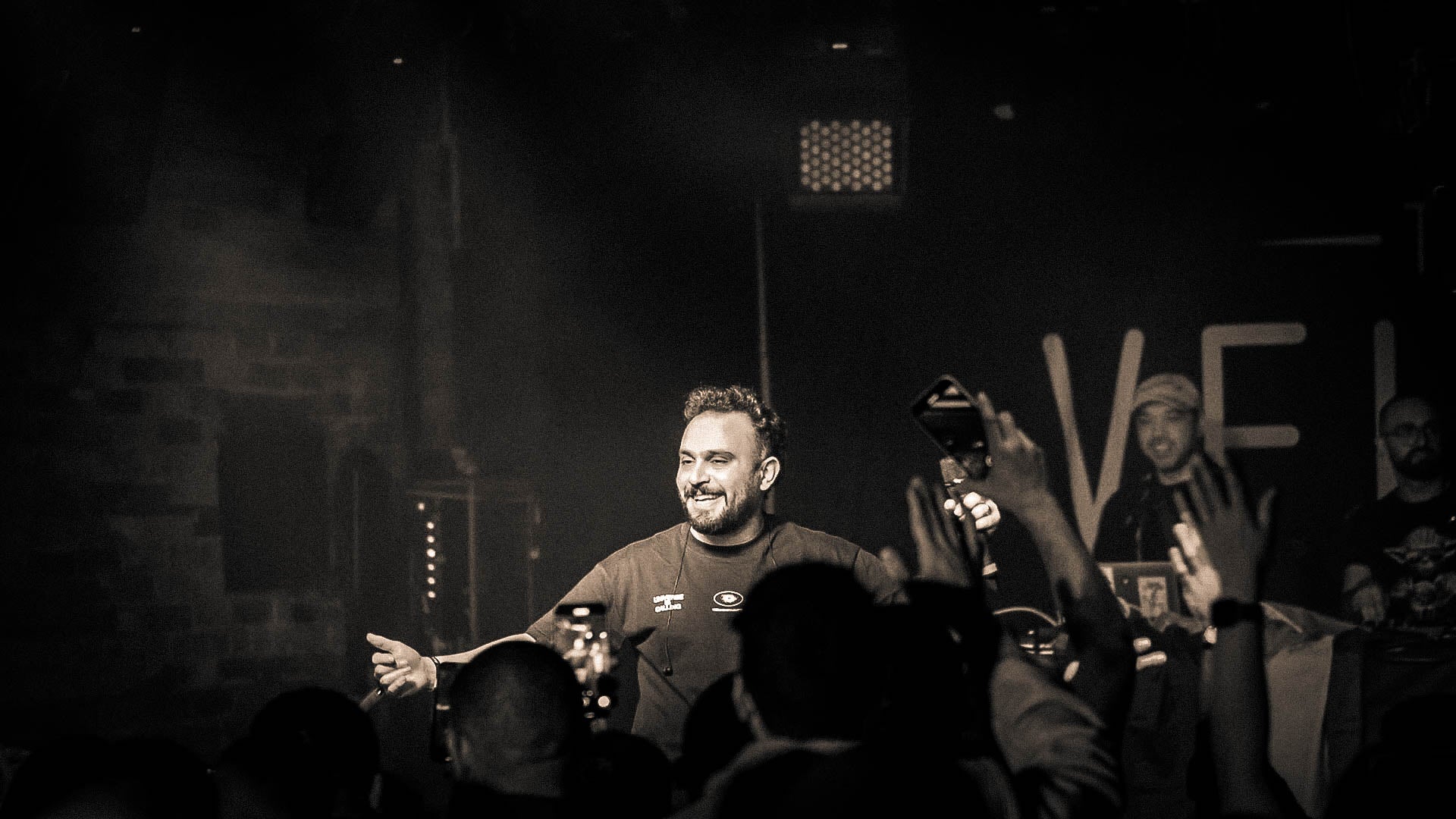
My name is The Synaptik. I'm a Palestine-based hip hop artist.
How did you first get into rap and what were some of your early influences growing up in Palestine/Jordan?
First thing I want to clarify, I actually grew up in Jordan. I moved to Palestine six years ago. I moved back. What got me into music first was writing. I used to write since I was a kid. I used to love writing poetry and stuff like that. As I got older, I listened a lot to... I didn't listen to a lot of hip hop. I listened more to Bob Dylan and rock stuff like Disturbed and Godsmack and Metallica, and mainly like Eminem and Tupac and 50 Cent and Lil Wayne - just like the stuff that I had access to. I got into rap after I finished high school. I started to write, and then I started to record, and it went from there.
Has your vision or mission as an artist changed since then? Since starting out?
When I started making music, I really didn't know what's the vision of it or what's the purpose of it because it was something very personal that I did for myself. It was like something that I did in my room to deal with stuff and sleep feeling good. Then, after all the years passed, and me interacting with my audience and hearing them tell me what my music means to them, I feel like now my vision is I want everyone to feel comfortable in their own skin, especially my people, because I know how hard it is in our culture to be different. If I want to do anything, if I have any purposes, I want people to feel it's okay for them to be themselves. It's okay to be different. It's okay to be a little fucked up. Everyone has the stuff they're dealing with and just do your thing and be comfortable with your own skin. And that's what I want to promote through my music.
That's so beautiful. And that's a very important message for sure.
Yeah, because I feel like that was something that I have struggled with. That's something that my music helped me with. That's wonderful. Yeah. I guess music is that for me.
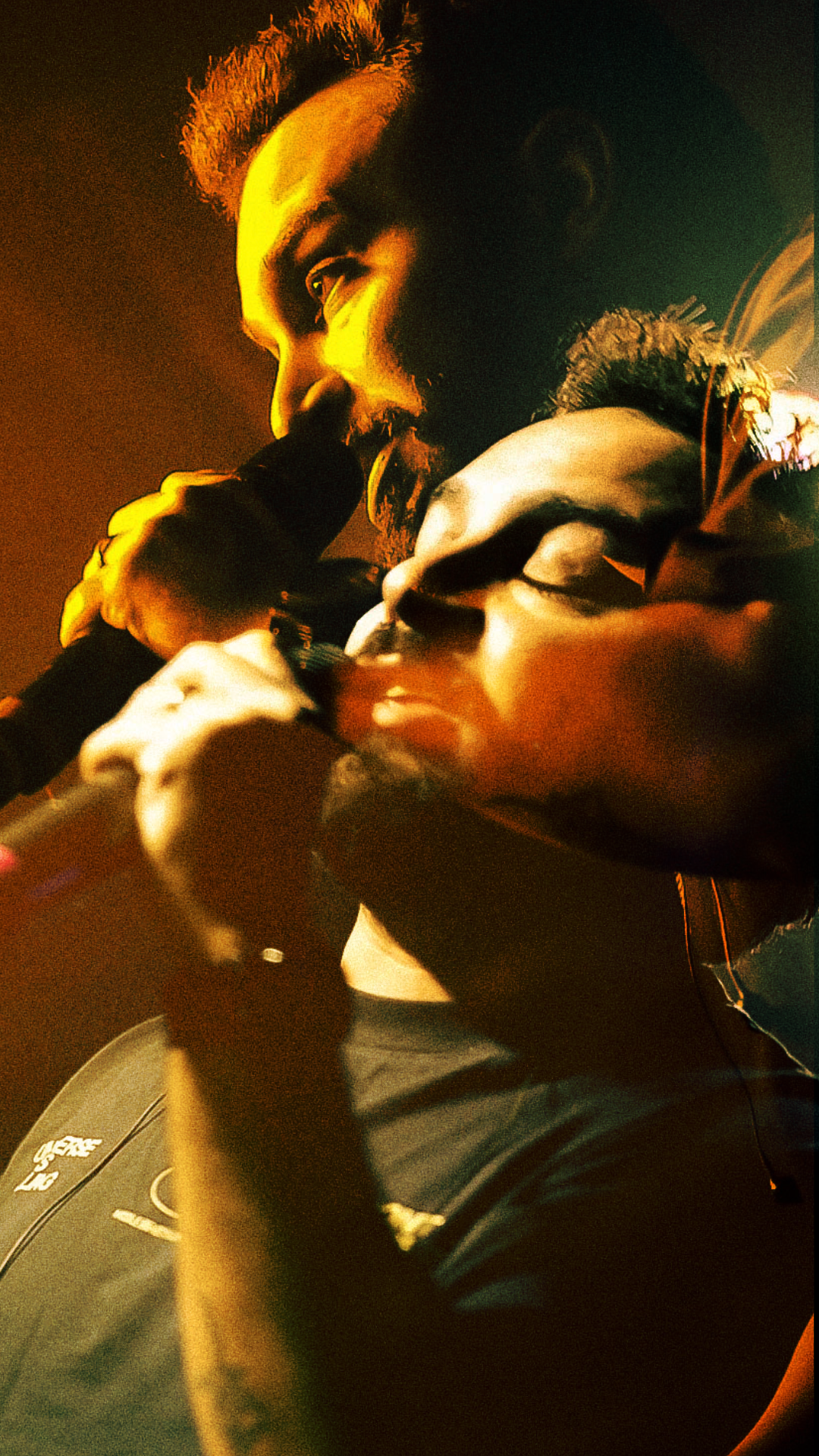
You studied medicine for 7 years and your interest in the brain led to the creation of your stage name. A lot of creatives often toe the line between choosing to pursue a creative career and a more linear traditional path. After 7 years studying medicine, what made you want to go all in as a rapper?
Actually, it's really funny you ask me this question now because I was actually in Buffalo, just very close to here. In my last year of medicine, I came to Buffalo to do an internship in Roswell Park, in a hospital in Buffalo. And I stayed there for five months, and I was interning in the hospital. I remember there that I felt so like... It was a very dark time in my life, and I was very unhappy. I got into a very deep depression in that period of time. I remember that I've decided that this is not going to work for me to do this all my life. If I wanted to live happy and be a happy person, I have to just go all in in music. I made the decision then that I'm just going to say yes to any opportunity. I'm not going to say yes to That music throws at me. I'm just going to go all in.
That's incredible. I love that. That's so inspiring.
It feels great to be back here as an artist. I almost want to rent a car and go to Buffalo, visit my address, where I live in Amherst. Oh, my gosh.
Haha, you should. It's close enough.
Yeah, it is. They used to tell me my friends, like half an hour, Toronto is half an hour away. Yeah.
How has your academic background influenced your approach to music, especially in terms of discipline, creativity, or even the way you think about lyrics and themes?
Well, I think that definitely studying medicine gave me a lot of discipline and a lot of work effects because I'm used to sitting in my room for very long hours and just studying. I used to make music when I used to take breaks from studying. I had my laptop and my mic and everything, and I would just open FL Studio and just start making during my breaks. I don't know. The way it developed, it was like hand-to-hand. It was with me studying. Because I started in 2012, and it was the same year that I started med school. I made most of my music while I was taking study breaks. It was a way for me to I destress. Empty my mind and rest after 10 hours of studying. Definitely me being as a med student and being with other med students for very long and having that lifestyle and working in the hospital, Definitely affected my personality and who I am. But I don't know how to explain it because I don't have any other reference. It's just I am who I am because of what I went through.
I feel like it's very commendable that you're able to maintain both. At least for the people that I know that go more into the medicine, science side, they're not really able to tap into the creative as much. So that's really very cool that you're able to be both.
Well, right now, I'm a full-time artist. I'm not dealing with medicine. I didn't really practice. I graduated, and I did a few months in a government hospital in Jordan. Then I just stopped going. One day, I just didn't go. I love what I do. I'm grateful that I get to do it. I just want to chase this because I know it's a special gift from God. I wouldn't throw it away to do something so conventional.
Absolutely. That's very inspiring.
Thank you.
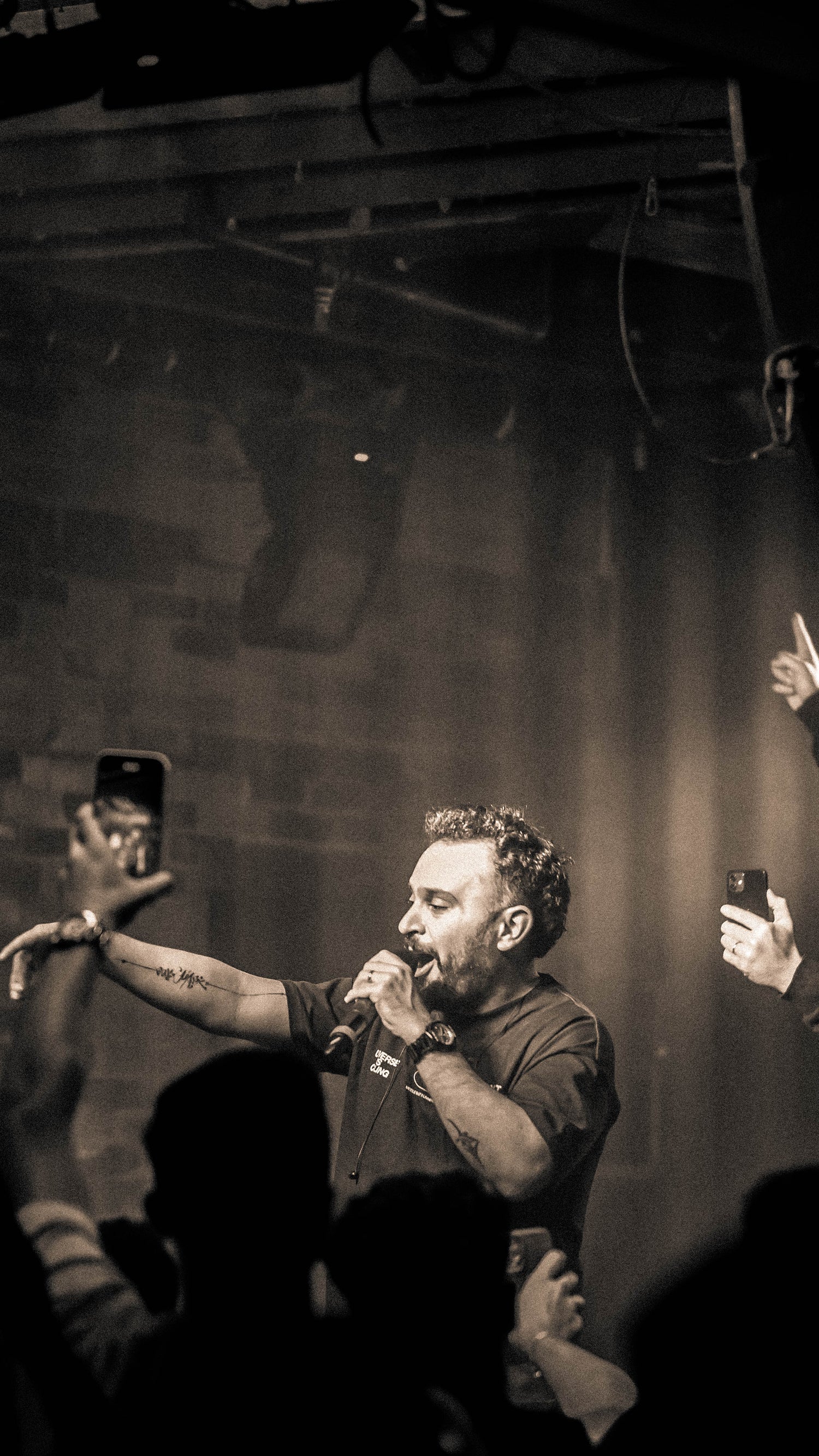
If you're comfortable with sharing, do you feel that there's a growing conversation about mental health in Arabic music scenes? How do you contribute to this dialog through your work, if you feel like you do?
I feel definitely there is more space than there was before for the conversation about mental health. But also there is a lot more work to be done because we come from communities where these matters are more taboo. I feel like the younger generations are more free from that. But I feel there's a lot more to be done. I feel for me, because my music is very personal, it's about me dealing with my my things. And as a person that have dealt with mental health issues for a big part of my life. I feel like I'm grateful. I get some messages from some of my fans that tell me that my music helped them with certain experiences, and they felt they're not alone, which is something that's very important. Sometimes that's all you need. I'm happy that there's more space, and I'm happy to be part of the work that is being done and needs to be done in the future.
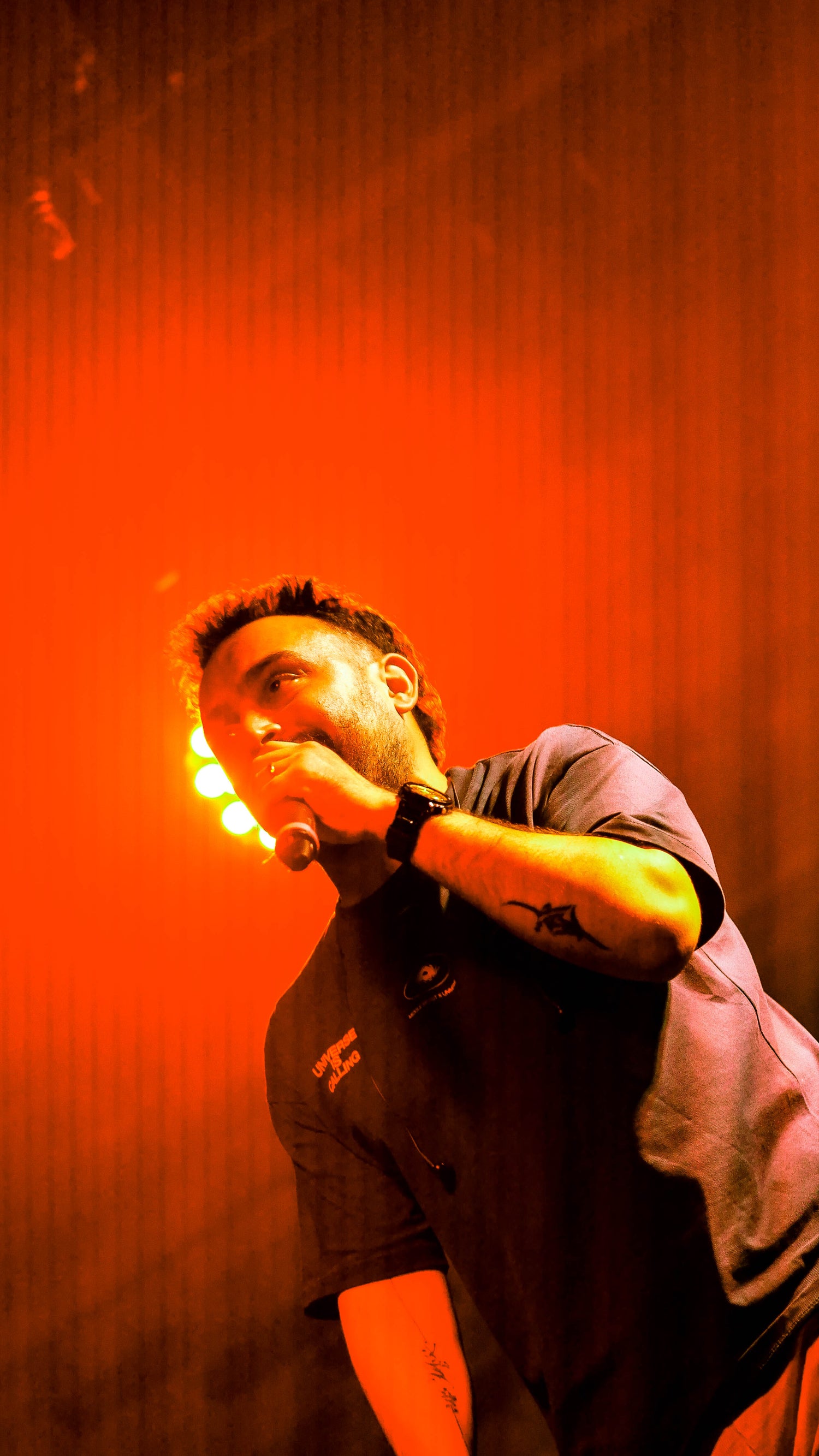
You've collaborated with a variety of artists across the globe. How do these collaborations come about and what do you look for in an artist when considering a potential collaboration?
I've done actually a lot of the collaborations that I've done with artists that I knew, that I knew personally or I knew through the hip hop communities. Because back in the day, the scene was very small, so we all knew each other. That's all we did all the time. We just collaborate stuff. There was no industry or anything. It was very small scene. I like artists that I like the music they make, mainly. If there's someone that I like the music, I will collaborate with. I like collaborations. I've done a lot of them.
I believe it. feel like that's sometimes the best way, working with other artists.
Yeah, it's fun. I like to challenge myself and change stuff.
You’ve been described as one of the pioneers of a new wave of sound for Arab youth. How do you view the current state of the Arab hip-hop scene, and where do you see it heading in the next few years?
I think that the Arabic scene right now is at a very important stage because I feel like Arabic culture has become so much more awareness about us, Arabs as individuals from the rest of the world. And now I feel like our culture is now really important also because there's a lot of us in the diaspora that are searching for their identity as a youth through music, through art, through street culture, through whatever they're interested in. I feel like that we are part of that mosaic, of that Arab identity, big picture. So I feel it's really important. And I think that now the second-generation artists are becoming... There's a lot of these young kids now, they're old enough and they're making music. The people that grew up listening to our music now are like... Now we are at that phase. And now there's an industry and there's full-time artists. Yeah, absolutely. The local record labels and everything is opening up and things are happening. I feel like it's really a vital moment. What's happening right now, I feel, is going to be very important in the future.
Is there anyone that you have your eye on that you've seen on the come up?
Yeah, there's a bunch of artists. There's a guy from Berlin. I've met a Palestinian guy who grew up in us in a refugee camp in Syria, then Jordan, and then Berlin has been there for a bit. I don't know, these young Arabs that have these crazy life stories. I don't know. This is their new... This guy is new. I don't know. It's the first generation. They went to Europe and the West when they were maybe, I don't know, like 9, 10. Now they're in their 20s. So exciting to see when they talk about their realities and their communities. So I like those people. There's a lot of new artists.
Given the socio-political climate in many parts of the Middle East and North Africa, how do you feel hip-hop and music, in general, can serve as a form of resistance or as a means of amplifying voices in the region?
I feel like hip hop, historically, in our regions, have been used in this way. We always had a very active, conscious, political hip hop artist like them, like. There's a bunch, especially the Levant artists. I feel right now it has an even more important role. But when you talk about our countries, you're talking about countries that are not exactly democratic countries. There's not much space for freedom of speech and talking about these sensitive things. I feel like there's a huge need for it, but there's also a fight. There is maybe a very tough fight because here, they bust down protests. But down there, you might go to a protest and just disappear for 20 years. No one cares. It's not like here. It's not like democracy. They can do whatever to you. It is tough, but it is needed. I feel like artists are smart. How they do this. We adapt.
I believe that as well. That is very powerful. Thank you. That's a really good response.
Thank you.
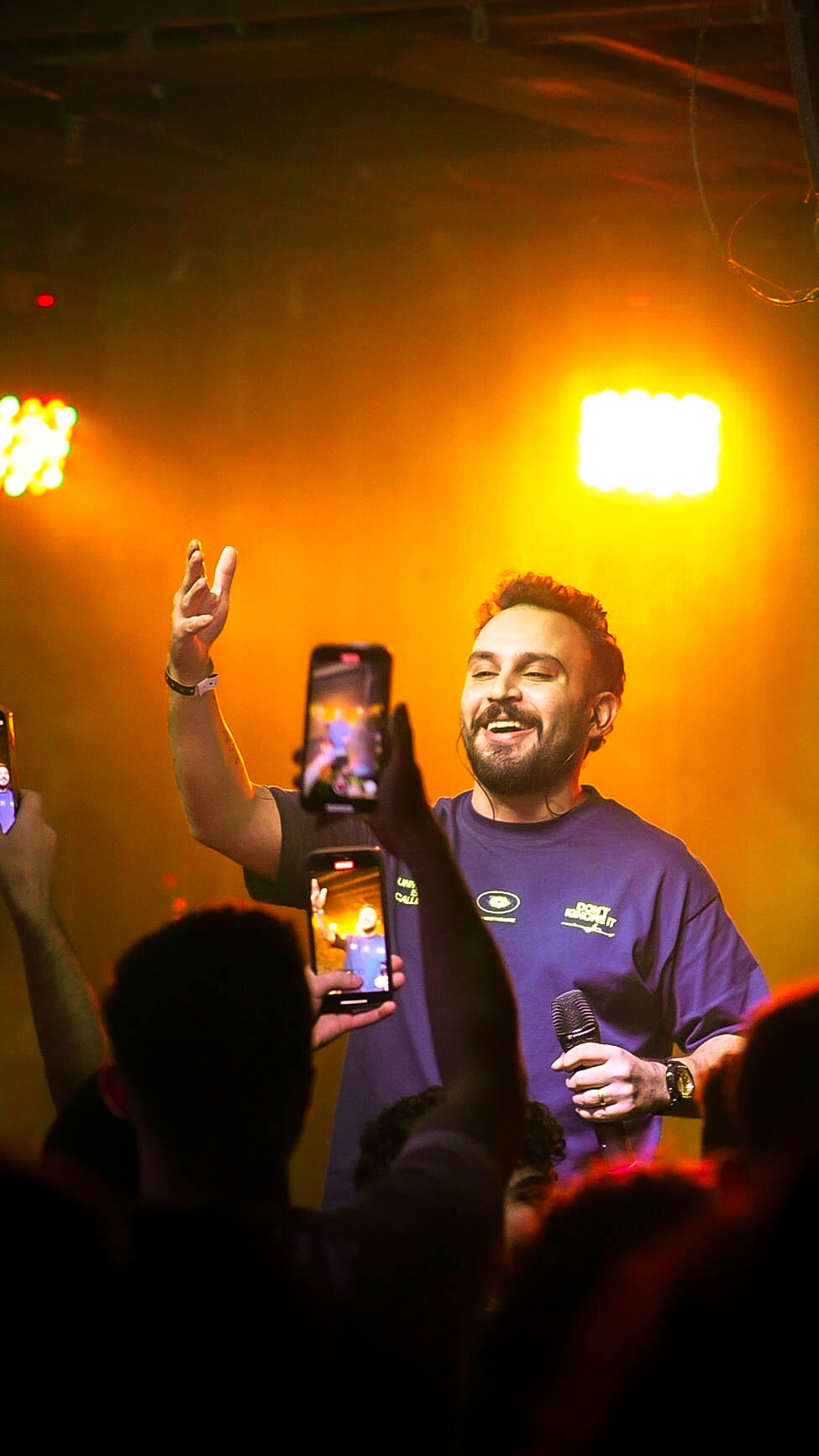
With the rise of streaming platforms, artists are able to reach audiences globally. How has this shift impacted your career, and what does the global recognition mean for you personally and professionally?
I feel like I'm at a phase of my career where I really look into this global recognition. I look at it as a goal at this stage of my career. I feel like it's really important for artists from the Middle East now to be heard across the globe since there's this interest in Arabic culture and us as a... Our culture in general. So I feel like now is the moment where I can go somewhere and have people actually listen to what I have to say. I have the attention of the world for a moment. I feel now is the time. This is why I'm doing all this, getting visas and dealing with all this shit and traveling very long distances and going from one city to another. Because I feel like now is... Now people should hear me. They should give me their ears now because they want to.
This is your first show in Canada! How do you feel about being in Toronto? Have you had a chance to explore the city?
I feel great about being in Toronto. I haven't really explored much. I got here yesterday, two or three. And we're staying in really close to the CN Tower. Beautiful. Right next to it. A very long building, like 43rd floor. It's on from the windows. It's amazing. We went and had ramen at like, Queen Street. Really nice place. The country is nice. Yeah, just in the area. Explore the city. Stuff like this. I really like it. It's very chill. It's not too busy. It has not been too busy. Actually, the weather is amazing. I thought it was going to be freezing. I have one million jackets.
Yeah, you came up at a good time.
The weather is amazing. That's good. I'm happy and I'm excited for Montreal also. Oh, yeah.
For my next question, I listened to your music. I love it. I love the rhythms and the musicality of it. I don't speak Arabic, but I really resonated with the sound, and it was very familiar. It made me want to dance. So I was wondering, in your music, what experience do you hope that the listener has?
When When I make music, and this is something that I've learned, not to compromise ever, I try to never force anything. I like for it to just happened. I like for it to just flow out of me and to be like a photo. When you take a photo of a moment, I like that photo to be very clear. So I don't try to force it, and I try to capture what I am feeling and my emotions. So when people listen to the song, I want them to feel what I'm feeling. So that's the most important criteria. When I record and I make music, it's for the emotions to be as transparent as possible. Because I feel like, as you said, even if you don't understand the words, you can still feel the... Oh, Feel that he's happy, he's sad. The emotion definitely comes through, even in the flows of the songs as well.
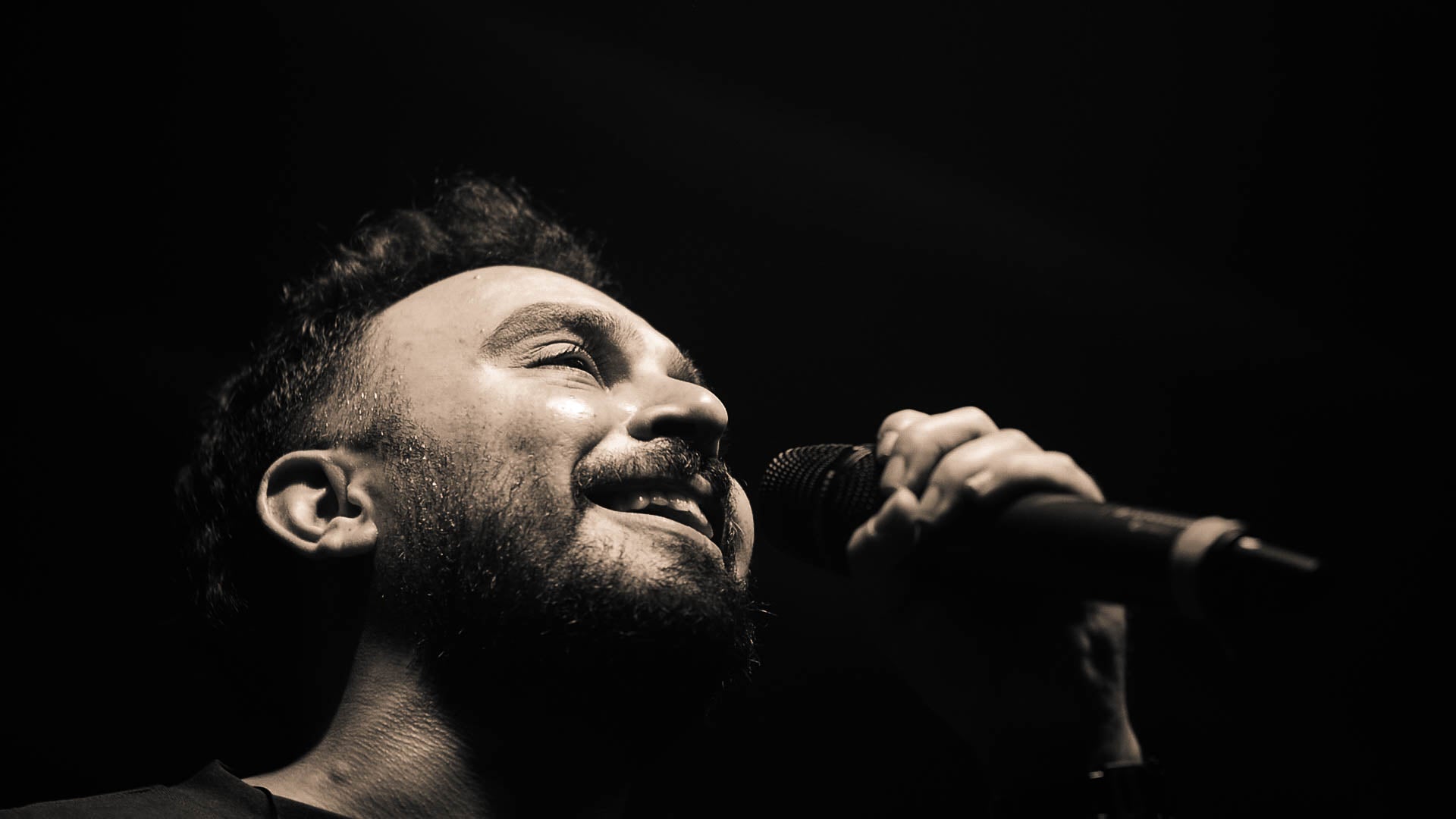
Do you have any upcoming projects that you'd like to share? And if so, what can we expect?
Well, first of all, I would like to say that in March 2024. I've become independent again.
Congratulations.
Thank you so much. I was with the Warner Music for four years, and I was just so happy I'm independent again. I just released my first album as an independent artist. We opened a label called Milq. That's incredible. Congratulations. It's great. I just released my first It's called Alta Man. And as we were working on its release, the war happened and everything got destroyed, but we decided to stick with the plan. I would appreciate if people just go and check this project. They would be supporting a Palestinian artist in Palestine that got affected directly from from the world. The album, we are pushing, we are doing the shows, we are shooting the videos. We have plans to shoot in Lebanon and everything got canceled. So now we're like, Oh, my God. I'm We're doing this. We're not just going to sit and wait. We're going to go and do stuff. So check the album out.
Yes, definitely. You know what’s even so funny. I have some friends that speak Arabic. And we're going to do a little listening party of your music because I don't speak Arabic. But I said, Oh, my gosh, I want to know what he's saying. So we're going to do a little listening party.
I'm going to translate them. I will do that. Awesome.
Well, those are all my questions. Thank you so much. It's so great speaking with you. I'm so excited for your show.
I hope you enjoy today. Absolutely. Thank you for the... I really like the questions.
Thank you. I'm so glad.
You're welcome. You're welcome.
